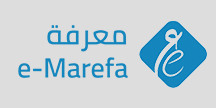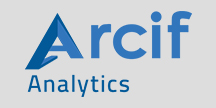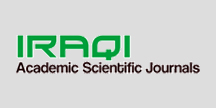Publication Ethics and Malpractice Statement
The ZANCO Journal of Human Sciences (ZJHS) ethical policy is based on the standards of the Committee on Publication Ethics (COPE) and conforms to the ZJHS Editorial Board rules of conduct. Readers, writers, reviewers, and editors who work with ZJHS should adhere to these ethical standards. Furthermore, ZJHS's ethical policy will determine which of the typical research papers or articles submitted to the journal will be published in the relevant issue.
Publisher's duties and responsibilities
ZJHS has the following duties and commitments:
- Recognizing the need to preserve an accurate and reliable repository for scholarly data, ZJHS emphasizes the preservation of research documents (including the submitted, accepted, and published versions).
- With an emphasis on academic value and quality, ZJHS is completely devoted to making final decisions regarding the editing and publication of submitted articles.
- ZJHS guarantees that manuscript submission decisions are exclusively based on professional experience, without any interference from financial objectives, to preserve the integrity of the scientific process.
- In order to maintain high ethical standards and practices, ZJHS carefully evaluates the ethics and conduct of key participants in the publishing process, such as the Editor-in-Chief, Associate Editors, Editorial Board Members, Reviewers, Authors, and Readers.
- ZJHS maintains diligence in its continuous efforts to detect and correct instances of plagiarism and fraudulent information within submitted publications, enhancing its commitment to academic integrity.
- ZJHS is always prepared to publish corrections, explanations, and retractions when necessary to correct any mistakes, inaccuracies, or omissions in its publications, ensuring the accuracy of its data as well.
Editors' Duties and Responsibilities
- Editors' roles and responsibilities include a variety of critical activities associated with the journal's publishing process.
- The editors have the ability to approve or reject submitted articles.
- The confidentiality of submitted articles must be rigorously protected throughout the review process prior to publication.
- Collaboration between the Editor-in-Chief, other editors, and reviewers is critical in establishing whether manuscripts are suitable for publication. Editors are required to protect the confidentiality of reviewers' comments.
- The editors must address and avoid any possible conflicts of interest in a transparent manner. It is critical to maintain academic integrity while fulfilling the expectations of both readers and authors.
- Editors must conduct thorough investigations into instances of plagiarism and incorrect data, and where appropriate, publish corrections, explanations, retractions, and apologies. Their contribution should be limited to academic substance.
- Editors are not permitted to provide any information about submitted manuscripts to anyone other than the corresponding author, reviewers, prospective reviewers, other editorial experts, and the publisher, if applicable.
- The editor or members of the editorial board may not use unpublished materials provided in submitted articles.
Reviewers' Duties and Responsibilities
- The reviewers are expected to contribute to the journal's editors in deciding whether papers submitted should be published, thereby playing a vital role in the peer review process.
- The privacy of articles under review is critical, and reviewers are expected to respect this confidentiality scrupulously.
- Reviewers are expected to provide timely and helpful feedback to assist editors in making informed decisions about the publishability of submitted articles.
In order to maintain ethical standards, reviewers must treat peer-reviewed articles with caution, ensuring that information obtained during the review process is not used for personal advantage. - Reviewers are required to provide technical, professional, and unbiased comments on invited articles, contributing to the rigorous evaluation of academic work.
- When reviewers detect a conflict of interest with any of the authors, companies, or institutions associated with a manuscript, they have to prevent themselves from evaluating that submission in order to maintain objectivity.
- The reviewers should honestly disclose any possible conflicts of interest and make attempts to minimize them in order to protect the integrity of the peer review process and ensure the objectivity and fairness of their decisions.
Authors' Duties and Responsibilities
- The articles should be provided in English with appropriate grammar and vocabulary, ensuring preciseness and clarity in communication.
- Authors have to verify that their submitted articles have not been previously published everywhere and are not currently under consideration by any other journal published by the same or any other publisher.
- The submitting corresponding author is responsible for obtaining consent from all co-authors for publication of the work, emphasizing the significance of mutual consensus in the co-authoring teams.
- Authors are encouraged to actively participate in the peer-review process in order to analyze articles from their peers, thus contributing to the integrity and effectiveness of the peer-review system.
- It is the author's obligation to guarantee that manuscripts originating from a particular institution are submitted with the necessary consent from the relevant institution, establishing a culture of institutional compliance and accountability.
- Authors must allow their articles to be edited for improved readability, understanding the importance of editorial contribution in improving the overall quality of the papers. Transparency is vital, and authors are encouraged to completely comprehend and disclose any kind of financial support for the study and article preparation, explaining the role of the funder or sponsor in the research process.
- Collective consent is needed, and all authors are expected to allow the corresponding author to connect with the editorial office for the approval of the edited manuscript and proof, ensuring simplified and efficient communication channels.
- Authors are required to rapidly contact the journal editor or publisher if substantial mistakes or inaccuracies are found in their published work, allowing for timely retractions or revisions and preserving the integrity of scientific publications.
- Authors should be informed that all submissions to ZJHS are reviewed using plagiarism prevention software, emphasizing the significant consequences of plagiarism and adherence to ethical publishing practices.
- The authors are encouraged to ensure that all co-authors have carefully examined the submission's final checklist before submitting it to ZJHS, promoting a rigorous and complete approach to the article submission process.









